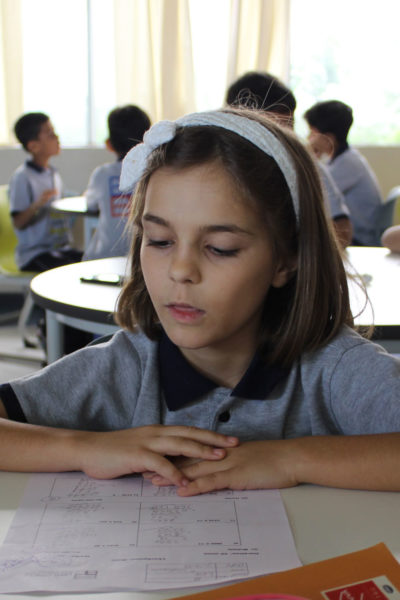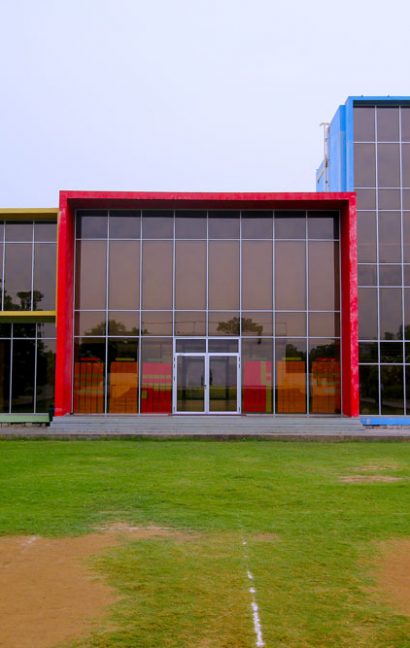
Welcome to GGIS
Learning at GGIS – is hands-on, inquiry-based, fun, engaging and student-centric.
It is inspired by real-life lessons, current information, individual educational plans, academic goals and plans and woven into our curriculum.
The learning process at GGIS is supported by providing qualified teachers with competent skills who are able to identify age-appropriate attributes that students should possess upon completion of a course or a program each year. This is because of the amalgamation of operating and interacting within the three domains – Knowledge, Skills and Attitude at school.
Teaching kids to count is fine, but teaching kids what counts is best for our philosophy at GGIS…….
A few major features of how students learn at GGIS are
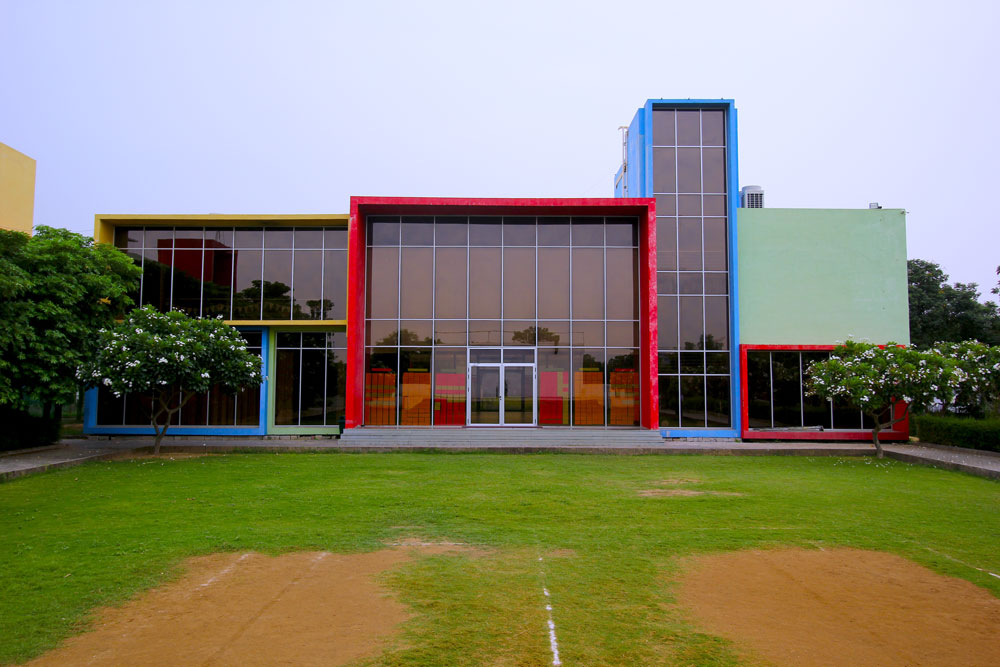
Welcome to GGIS
Learning at GGIS – is hands-on, inquiry-based, fun, engaging and student-centric.
It is inspired by real-life lessons, current information, individual educational plans, academic goals and plans and woven into our curriculum.
The learning process at GGIS is supported by providing qualified teachers with competent skills who are able to identify age-appropriate attributes that students should possess upon completion of a course or a program each year. This is because of the amalgamation of operating and interacting within the three domains – Knowledge, Skills and Attitude at school.
Teaching kids to count is fine, but teaching kids what counts is best for our philosophy at GGIS…….
A few major features of how students learn at GGIS are
The Leader In Me
An official member of The Leader in Me (TLIM) schools network by Franklin Covey Education, GGIS is proud to claim that ALL its students and faculty members are immersed in the 7 Habits of Highly effective people. The legendary book by Stephen Covey that changed the course of many corporates and countries has been adapted to suit a school’s needs through the Leader in Me Program.
GGIS, the official and one of the pioneers to adopt such a program in India, weaves it seamlessly in its culture.
Right from 3 years plus children start learning about the 7 habits with Good Bear and Sammy the squirrel. As the students grow, the 7 habits take different shapes and are practised as a separate unit each week as well as woven in the core academic subjects.
TLIM program transcends age groups and backgrounds and becomes even more important in changing times like ours when artificial intelligence and life-long learning become the norm rather than the exception.

The Leader In Me

An official member of The Leader in Me (TLIM) schools network by Franklin Covey Education, GGIS is proud to claim that ALL its students and faculty members are immersed in the 7 Habits of Highly effective people. The legendary book by Stephen Covey that changed the course of many corporates and countries has been adapted to suit a school’s needs through the Leader in Me Program.
GGIS, the official and one of the pioneers to adopt such a program in India, weaves it seamlessly in its culture.
Right from 3 years plus children start learning about the 7 habits with Good Bear and Sammy the squirrel. As the students grow, the 7 habits take different shapes and are practised as a separate unit each week as well as woven in the core academic subjects.
TLIM program transcends age groups and backgrounds and becomes even more important in changing times like ours when artificial intelligence and life-long learning become the norm rather than the exception.
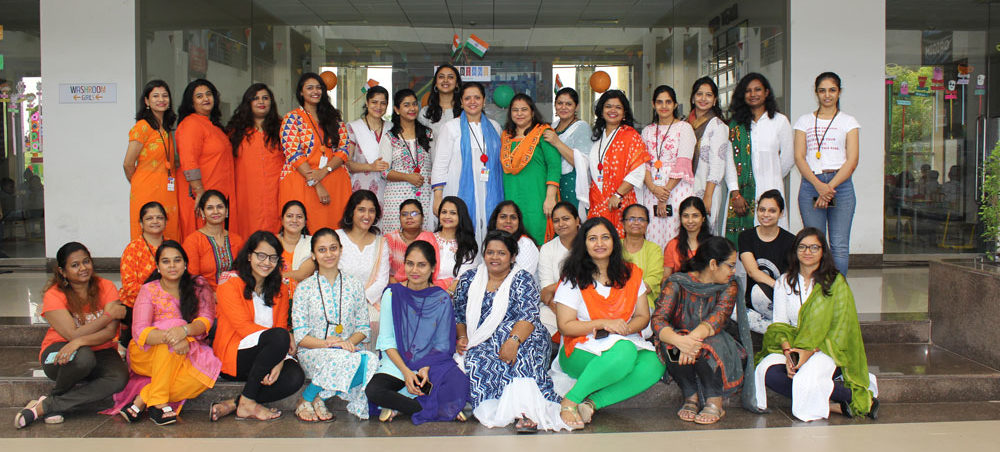
Teachers as learners
In most schools, only students are looked upon as learners but for us, our teachers are our first learners. All teachers at GGIS undertake rigorous training and find personal plans for professional development. Just like students, our teachers too keep their own learning portfolio that shows their journey year on year. Also with TLIM program, all our teachers practice the Habits regularly and keep their saws sharpened.
Teachers as learners

In most schools, only students are looked upon as learners but for us, our teachers are our first learners. All teachers at GGIS undertake rigorous training and find personal plans for professional development. Just like students, our teachers too keep their own learning portfolio that shows their journey year on year. Also with TLIM program, all our teachers practice the Habits regularly and keep their saws sharpened.

Core Academic Subjects
As GGIS offers a blended curriculum up until Grade 5, the academic subjects ensure that the child is well-equipped for the boards.
Our Language Arts, Global Perspectives, and Science program follow the Cambridge Pathway providing international language skills and deep scientific thinking.
Our Maths and Hindi program follow the NCERT framework equipping the child for the national boards.

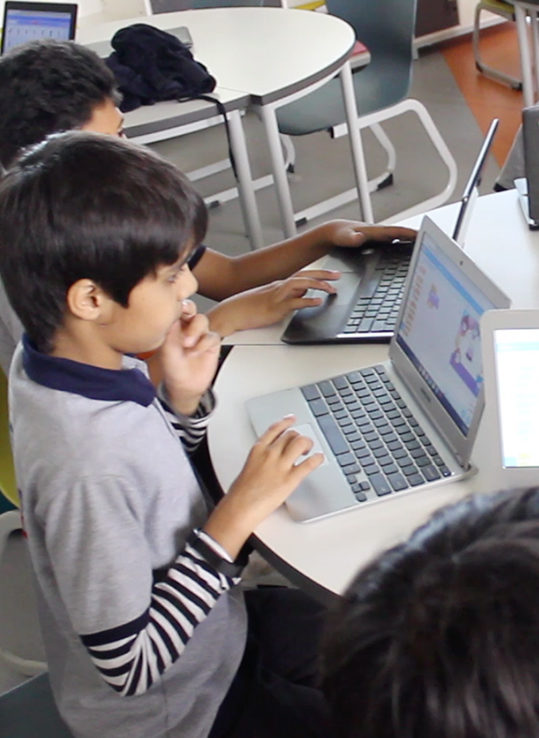
Digital learning platforms
GGIS a strong proponent of technology and harnesses it to ensure that children are future-ready. Digital Literacy is facilitated by the direct and indirect use of technology or digital tools. The implementation of digital learning in a classroom is crucial to learning at our school.
GGIS extensively uses its school app as well as Google Classroom to keep in touch with all students and parents as they enrol into our school. The app is also used to communicate daily classwork, homework and assignments to students as well as to send out important updates and notes from our side. This keeps communication open and streamlined ultimately benefiting all three stakeholders.
We also use Mindspark, an adaptive online tool that enhances children’s understanding of Math. Mindspark keeps the students deeply engaged and they end up getting far more rigour from 30 minutes of daily practice than any amount of worksheets can.
GGIS understands that almost 65% of students are visual learners and we need to tap into their abilities differently. To facilitate them, and to present the lesson in a simple, effective and easy to understand method for students, our teachers use effective YouTube videos, podcasts, video clippings, powerpoint presentations. The Audio-Visual method appeals most to the senses. It leaves a deeper impact as it involves greater attention in the act of learning and helps the child to retain the concepts taught through these aids.
Digital learning platforms

GGIS a strong proponent of technology and harnesses it to ensure that children are future-ready. Digital Literacy is facilitated by the direct and indirect use of technology or digital tools. The implementation of digital learning in a classroom is crucial to learning at our school.
GGIS extensively uses its school app as well as Google Classroom to keep in touch with all students and parents as they enrol into our school. The app is also used to communicate daily classwork, homework and assignments to students as well as to send out important updates and notes from our side. This keeps communication open and streamlined ultimately benefiting all three stakeholders.
We also use Mindspark, an adaptive online tool that enhances children’s understanding of Math. Mindspark keeps the students deeply engaged and they end up getting far more rigour from 30 minutes of daily practice than any amount of worksheets can.
GGIS understands that almost 65% of students are visual learners and we need to tap into their abilities differently. To facilitate them, and to present the lesson in a simple, effective and easy to understand method for students, our teachers use effective YouTube videos, podcasts, video clippings, powerpoint presentations. The Audio-Visual method appeals most to the senses. It leaves a deeper impact as it involves greater attention in the act of learning and helps the child to retain the concepts taught through these aids.
Rite of Passage (RoP)
RoP is a set of studies spread over each grades 3-8 to reflect the needs of today’s workplace.
Our academics, while very important for advanced study, are sometimes unable to offer us practical situations like the ones would face in the workplace. This can make students book-wise but clueless otherwise! But, at GGIS, we do not teach for tests and our students have to be able to do well in the future workplace. Hence RoP.
RoP studies are diverse and everything from creating an installation to making newsletters to films is a part of RoP and students eagerly participate in each study.
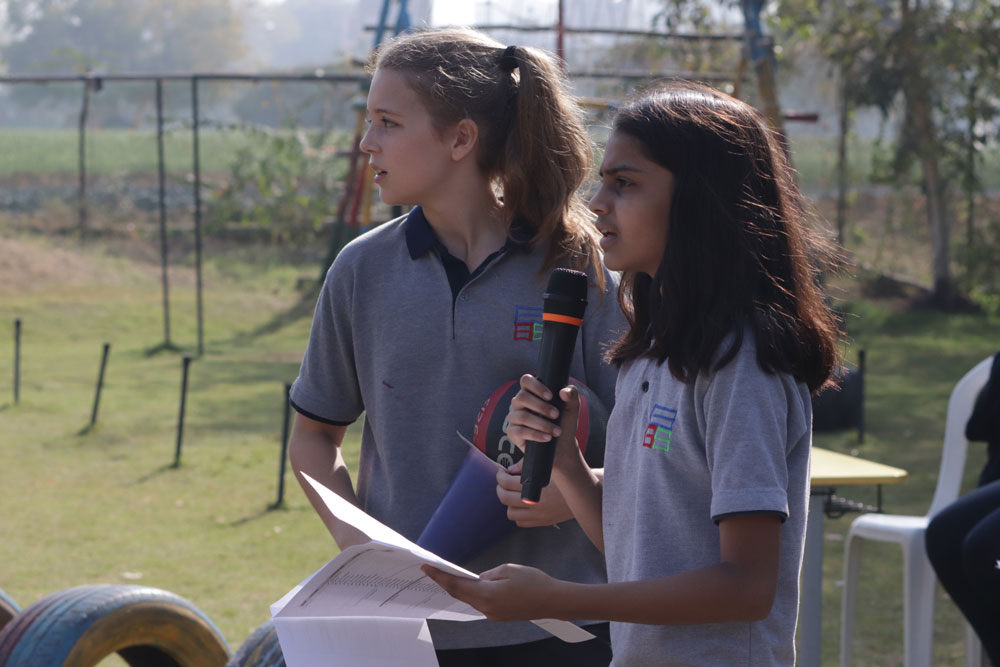
Rite of Passage (RoP)

RoP is a set of studies spread over each grades 3-8 to reflect the needs of today’s workplace.
Our academics, while very important for advanced study, are sometimes unable to offer us practical situations like the ones would face in the workplace. This can make students book-wise but clueless otherwise! But, at GGIS, we do not teach for tests and our students have to be able to do well in the future workplace. Hence RoP.
RoP studies are diverse and everything from creating an installation to making newsletters to films is a part of RoP and students eagerly participate in each study.
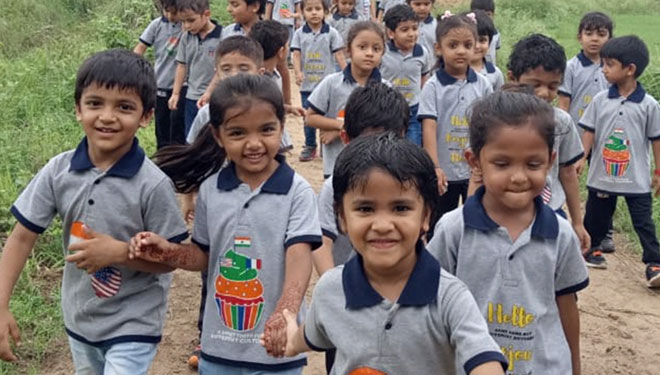
Field visits and Edutours
Learning is not within the four walls of the classroom and GGIS sure knows that. Real-life experiences make learning deeper and have a far greater impact than textual content. Keeping this in mind, GGIS students regularly visit places of all kinds and nature from a potter to a farmer to software companies. Every place can be a source of learning and we keep our students on the move.
Besides the field visits, GGIS students of grades 3 and above also go on longer duration edutours. The edutours are India specific and knitted well with our curriculum thereby making the tour great learning experience.
Field visits and Edutours

Learning is not within the four walls of the classroom and GGIS sure knows that. Real-life experiences make learning deeper and have a far greater impact than textual content. Keeping this in mind, GGIS students regularly visit places of all kinds and nature from a potter to a farmer to software companies. Every place can be a source of learning and we keep our students on the move.
Besides the field visits, GGIS students of grades 3 and above also go on longer duration edutours. The edutours are India specific and knitted well with our curriculum thereby making the tour great learning experience.
Relevance and Rigour
We love to ask why and so do our students. Everything we teach has to have a specific purpose and once its real-life relevance is discussed, students tend to absorb it much faster. This also forces us as educators to choose topics that are student-centric and keep the discussion around why we do what we do.
Besides relevance, our students also have ample opportunities to practice rigour for all the things they have learnt. Our homework and weekly assignments are clearly discussed with students of all age groups thereby keeping the onus of the same on students rather than parents. Also, rigour comes in many forms in GGIS right from Math games on Mindspark to 3 letter hopscotch to interviews of neighbours.
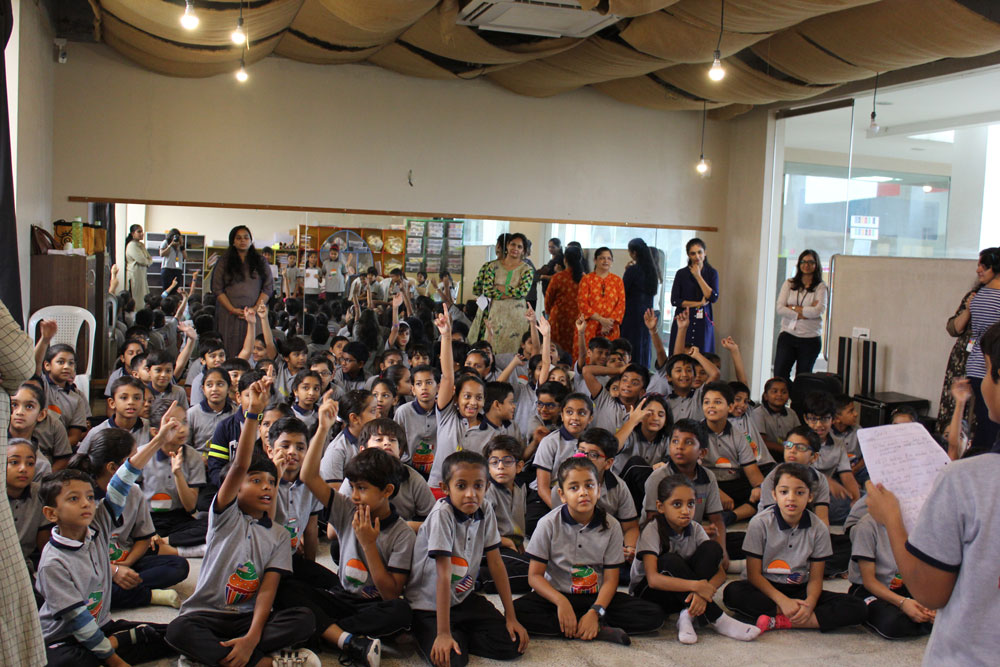
Relevance and Rigour

We love to ask why and so do our students. Everything we teach has to have a specific purpose and once its real-life relevance is discussed, students tend to absorb it much faster. This also forces us as educators to choose topics that are student-centric and keep the discussion around why we do what we do.
Besides relevance, our students also have ample opportunities to practice rigour for all the things they have learnt. Our homework and weekly assignments are clearly discussed with students of all age groups thereby keeping the onus of the same on students rather than parents. Also, rigour comes in many forms in GGIS right from Math games on Mindspark to 3 letter hopscotch to interviews of neighbours.
Sharing what we learn
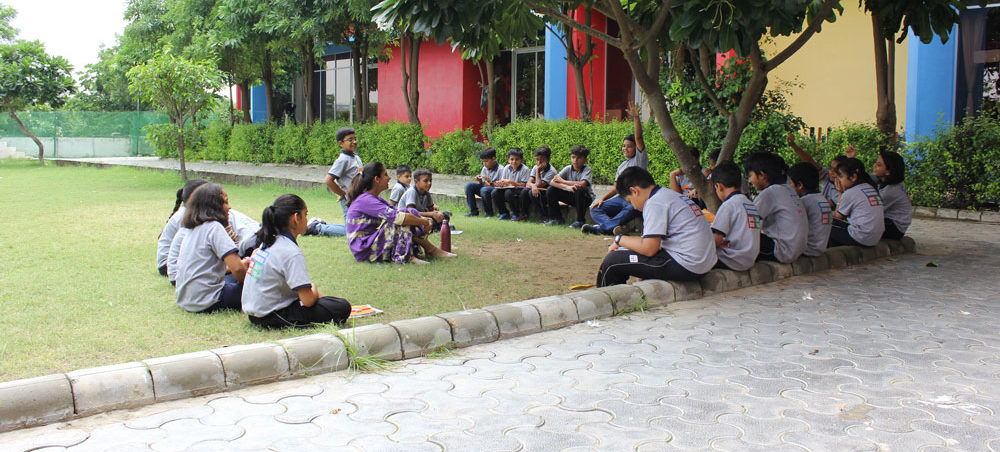
Our students get multiple opportunities to showcase all that they have learnt. And to us, that too is a form of learning. When our students devise games around Math and interactive material to explain concepts of Physics, their knowledge solidifies. Through various interventions like Funderstanding, Weekly Class Assemblies, Yearly Yatra, Portfolios, etc our students spread their learning net far and wide.
Assessment at GGIS
For Grades 3 to 6
-
For Grades 3 to 6
Rite of Passage (RoP)
-
Rite of Passage (RoP)
External Tests
-
External Tests
Grade 7 onwards
-
Grade 7 onwards
